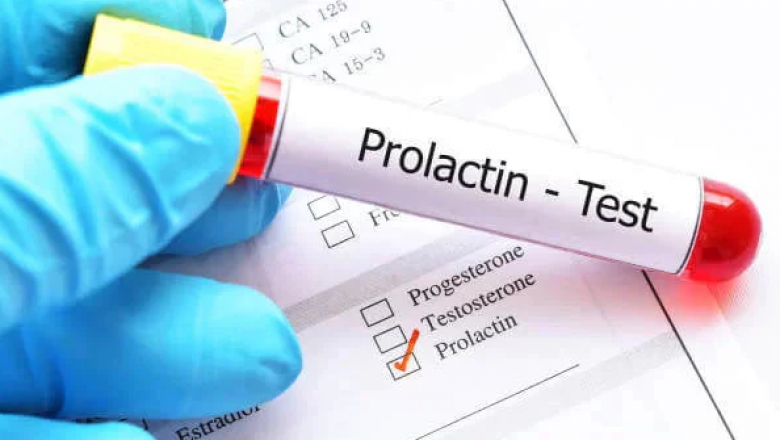views
A Prolactin Test is a simple blood test used to measure the levels of prolactin, a hormone produced by the pituitary gland. Prolactin plays a vital role in various bodily functions for both women and men. While it is most commonly associated with breastfeeding, its influence extends far beyond lactation. This comprehensive guide explains what a prolactin test is, why it’s performed, and how it impacts overall health.
What is Prolactin?
Prolactin is a hormone responsible for stimulating milk production in women after childbirth. However, it also has roles in regulating reproductive and immune systems in both sexes. Normal prolactin levels vary by age, sex, and physiological conditions such as pregnancy.
High or low prolactin levels can indicate underlying health issues, making a prolactin test essential for diagnosis and treatment.
Why is a Prolactin Test Performed?
A prolactin test is usually recommended when certain symptoms or conditions suggest an imbalance in prolactin levels. These include:
For Women:
- Irregular or absent menstrual cycles.
- Infertility or difficulty conceiving.
- Unexplained breast milk production (galactorrhea) when not breastfeeding.
- Symptoms of polycystic ovary syndrome (PCOS).
For Men:
- Erectile dysfunction.
- Decreased libido.
- Infertility.
- Enlarged breast tissue (gynecomastia).
For Both:
- Persistent headaches or vision problems, which may indicate a pituitary gland issue.
- Symptoms of hypothyroidism, as it can affect prolactin levels.
- Diagnosing pituitary gland tumors (prolactinomas).
How is a Prolactin Test Done?
The test involves a simple blood draw, usually taken from a vein in your arm. It’s often performed in the morning when prolactin levels are naturally at their peak. Here’s what you can expect:
- Preparation: Avoid eating or drinking for at least 8 hours before the test. Stress, physical activity, and certain medications can affect prolactin levels, so follow your doctor’s instructions carefully.
- Blood Collection: A healthcare professional will draw a small amount of blood. The process takes only a few minutes.
- Results: The blood sample is analyzed in a lab, and results are typically available within a few days.
What Do Prolactin Test Results Mean?
Normal Levels:
- For women (non-pregnant): 4 to 23 ng/mL.
- For pregnant women: 34 to 386 ng/mL.
- For men: 3 to 15 ng/mL.
High Prolactin Levels (Hyperprolactinemia):
Elevated levels may indicate:
- Prolactinoma (a benign pituitary tumor).
- Hypothyroidism.
- Stress or intense physical activity.
- Side effects of certain medications, such as antidepressants or antipsychotics.
Low Prolactin Levels:
Low levels are rare but can occur due to:
- Pituitary gland dysfunction.
- Certain medical conditions like hypopituitarism.
What Happens After the Test?
If your results show abnormal prolactin levels, your doctor may recommend further tests or imaging studies, such as an MRI, to examine the pituitary gland. Treatment options depend on the underlying cause and may include:
- Medications: Dopamine agonists to lower prolactin levels.
- Surgery: To remove a pituitary tumor, if necessary.
- Hormone Therapy: For conditions like hypothyroidism.
When Should You Consider a Prolactin Test?
You should discuss a prolactin test with your doctor if you experience any of the following:
- Persistent hormonal imbalances.
- Unexplained reproductive or sexual health issues.
- Symptoms pointing to pituitary gland problems.
Early diagnosis and treatment can help manage symptoms effectively and prevent complications.
Conclusion
A prolactin test is a simple yet powerful tool for diagnosing a variety of health conditions in both women and men. By understanding your prolactin levels, you can address potential issues early and maintain your overall health.
If you’re experiencing symptoms that might be related to a prolactin imbalance, don’t hesitate to consult your doctor. Regular testing and timely treatment can make a significant difference in your quality of life.






















Comments
0 comment